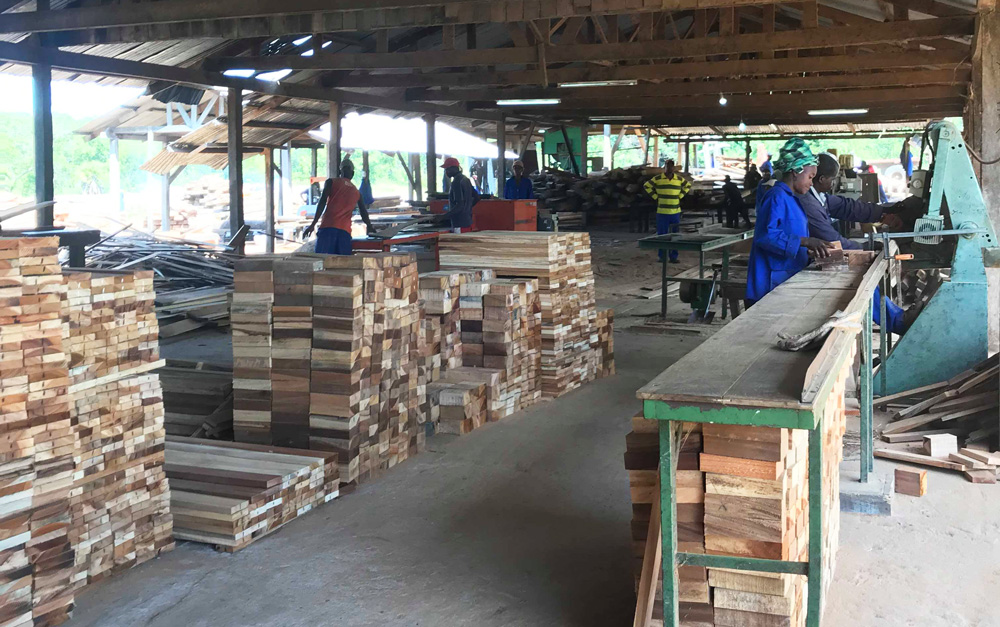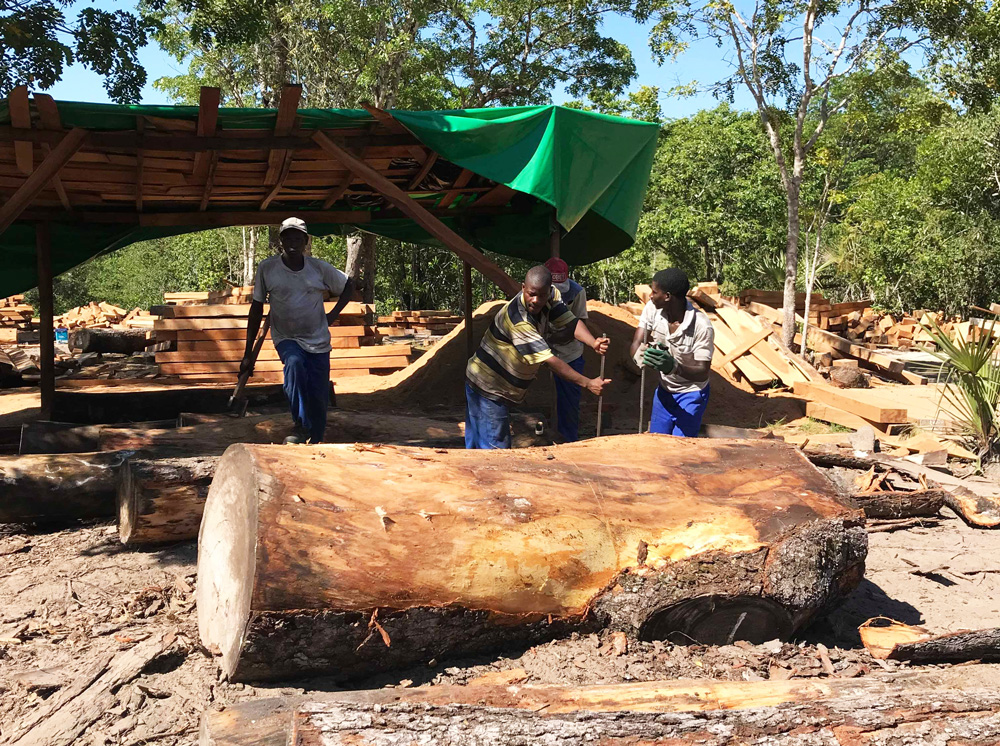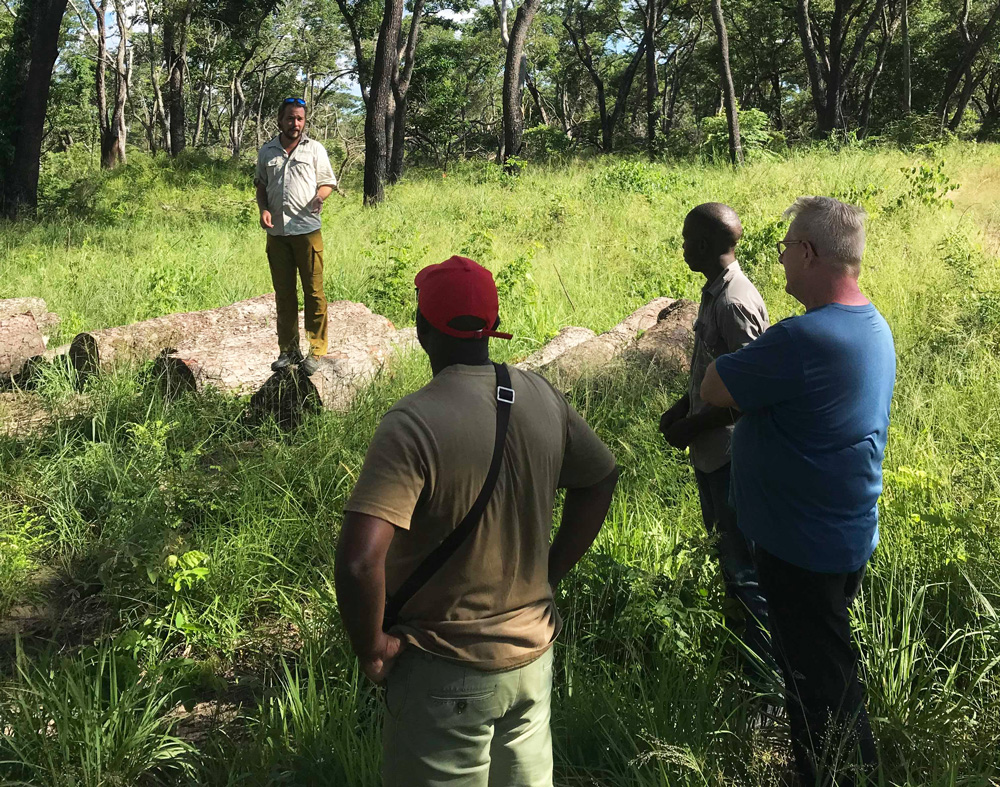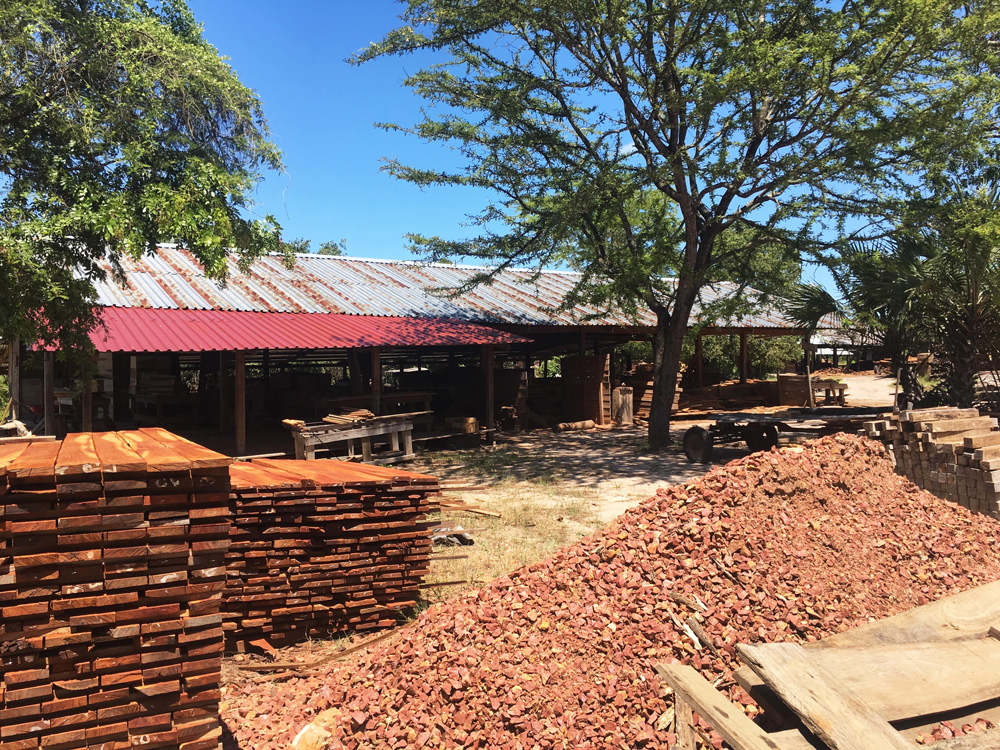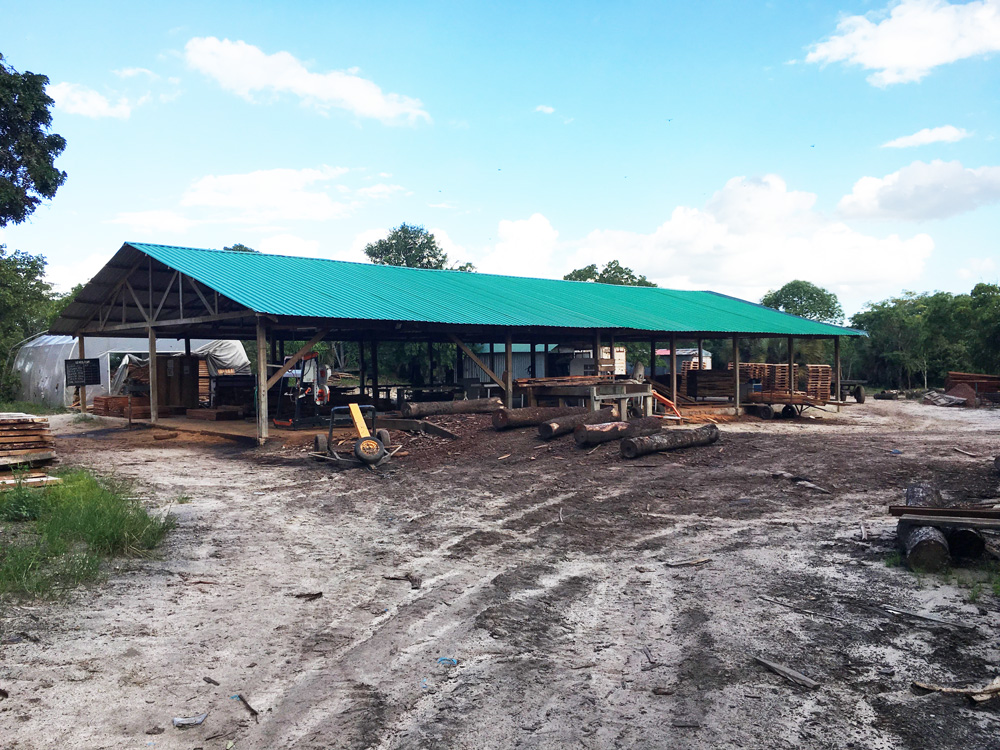Tropical forestry is usually associated with deforestation and community exploitation. But one sustainable timber company settled in the countryside of Mozambique is hacking the way forward.
Let’s admit, most of us have little idea about just how much of our daily lives depend on forest products. The chairs we sit on, the mugs we drink from, and the books we read – all initially come from forests.
In Sweden, most of the wood for daily products originates from production forests. Unlike natural forests, these tend to be monocultures of common species like Scots pine and Norway spruce with low overall biodiversity and resilience. Depending on whom you ask, production forests occupy from 71% to 96% of Swedish forest area.
Forest business rooted in sustainability
Nils von Sydow, the CEO of LevasFlor, is Swedish but has lived in Mozambique for a decade. When asked about the main differences between forestry in his home country and in Mozambique, he explains: “Forestry in northern Europe works like a well-oiled machine. Here, down south, disorder and chaos rule. It is hardly managed based on science and every day brings new challenges.”
Doing business in Mozambique for over 12 years, LevasFlor, puts community empowerment, conservation, and sustainable forestry at the core of its business model. The name LevasFlor comes from combining Lebombo (Le) and Västerås (Vas) with floresta (Flor), which is Portugese for forest. “We do our best to stand on as many legs as possible in order to maintain our business,” says Nils when asked to summarize their success and reason for longevity. But let’s dive deeper into the ins and outs of the forest industry in Mozambique to understand how it’s like to build a sustainable business here.
This is not always the case in the tropics, where many countries still have large areas of natural forests left. But is it possible to combine these islands of nature with production forests and extract wood without knocking out biodiversity?
